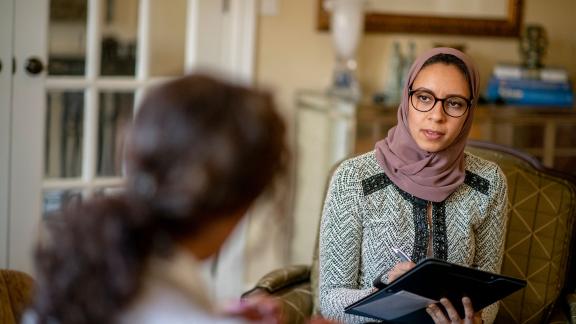From a call to action to a challenge

With the call for equality in the NHS gaining momentum, Sam Allen, Dr Navina Evans and Rob Webster reinforce the responsibility of leadership to embed it in the culture of the NHS.
We have learned over the last few months that COVID-19 disproportionately impacts upon BAME and communities. The response to this has been to investigate the reasons why so that appropriate action can be taken. Back in April we called on all NHS leaders to join us to act. We talked about ensuring that there is sufficient representation in decision making. We argued that without this the healthcare system risks missing an opportunity for diverse thought while underplaying the impact of COVID-19 on these communities. Subsequently NHS England’s chief people officer requested that we all do this. Given the events of the last few weeks those of us who have responded will be better placed to act on subsequent developments.
Since we last wrote, we have seen some positive developments on risk assessment of staff with good work by NHS Employers collating evidence and best practice from the NHS. However, we have also seen missed opportunities and an escalation in frustration and anger at a perceived lack of action. Public Health England’s report into why different groups are more at risk is a welcome analysis of the evidence. It shows shocking disparities for different elements of society even when deprivation, age and geography are taken into account. The lack of specific recommendations in the report is a missed opportunity and deepens mistrust. Organisations representing BAME staff wrote to the Secretary of State in an unprecedented move.
All of this is happening during the intense pressure of COVID-19 and the community’s response to the murder of George Floyd. The latter has brought diverse communities onto the streets to protest at what the evidence tells us is barn door obvious. BAME communities face inequalities and discrimination in Britain today. BAME health and care staff face inequalities, discrimination, harassment and abuse in the NHS today; the situation is very different for BAME staff than it was a few weeks ago. It is also different for non-BAME staff, even if many do not realise this is so. It marks a turning point in the culture of the NHS, specifically around issues, trust and relationships based on race which will forever be part of the narrative in healthcare in this country going forward. We should all be concerned that the thanks and appreciation shown during the early days of the COVID-19 crisis may appear hollow. BAME patients are also beginning to ask about systemic racism and are losing confidence in our ability to care fairly. There is a potential for a pandemic of mistrust and division taking hold in our society in a way which COVID-19 does not.
Those with diverse leadership teams and staff networks will be able to visibly demonstrate that they had the tools to empathise, listen and act. Above all, action is needed right now. Real interventions have included a best practice risk assessment with appropriate adjustments and good PPE, proper, diverse and inclusive representation at board level, appropriate policies and a firm commitment to the WRES. More must be done. Every system must demonstrate visible leadership on these issues including commitments to measurable outcomes that address the inequalities that have been amplified by the impact of COVID-19.
Simon Stevens told us this week that we need to be honest with ourselves: the NHS as an embedded part of society is both part of the problem and part of the solution. More intentional action is needed to deliver on the moral basis for the NHS – high-quality care for all. And faster action is needed on the reality of the racism and discrimination experienced by many colleagues across the NHS.
As NHS leaders, we are committed to doing all we can to make this a reality. The actions we each take in the next few weeks will forever define us. Good intentions, ethical positions and statements of support are forthcoming; this is a great start. True change will only be possible as a result of action taken by those who hold most of the power, which is currently associated with the colour of one’s skin. We must demonstrate leadership on the work that needs to be done with non-BAME staff to come together to make change happen. We are also committed to open and honest conversations that recognise that we need to dismantle aspects of the health and care system that still, to this day, prevent diverse representation. In doing so, we must acknowledge the role racism has played in this. We need to accept that we have been part of that very system and benefitted while others have not. The first step is to acknowledge this, the second to take action and then, and only then, we may enable some healing to take place.
This is going to be tough; we must approach it with honesty and draw on the wisdom and experience that exists across our communities with the courage to know that the first step is working on ourselves. As Nelson Mandela said: “One of the most difficult things is not to change society – but to change yourself”.
Sam Allen is chief executive at Sussex Partnership NHS Foundation Trust and chair of the Health & Care Women Leaders Network. Follow her on Twitter @Samanthallen
Dr Navina Evans is chief executive of East London NHS Foundation Trust. Follow her on Twitter @NavinaEvans
Rob Webster is chief executive of South West Yorkshire Partnership NHS Foundation Trust and lead chief executive West Yorkshire and Harrogate ICS. Follow him on Twitter @NHS_RobW


